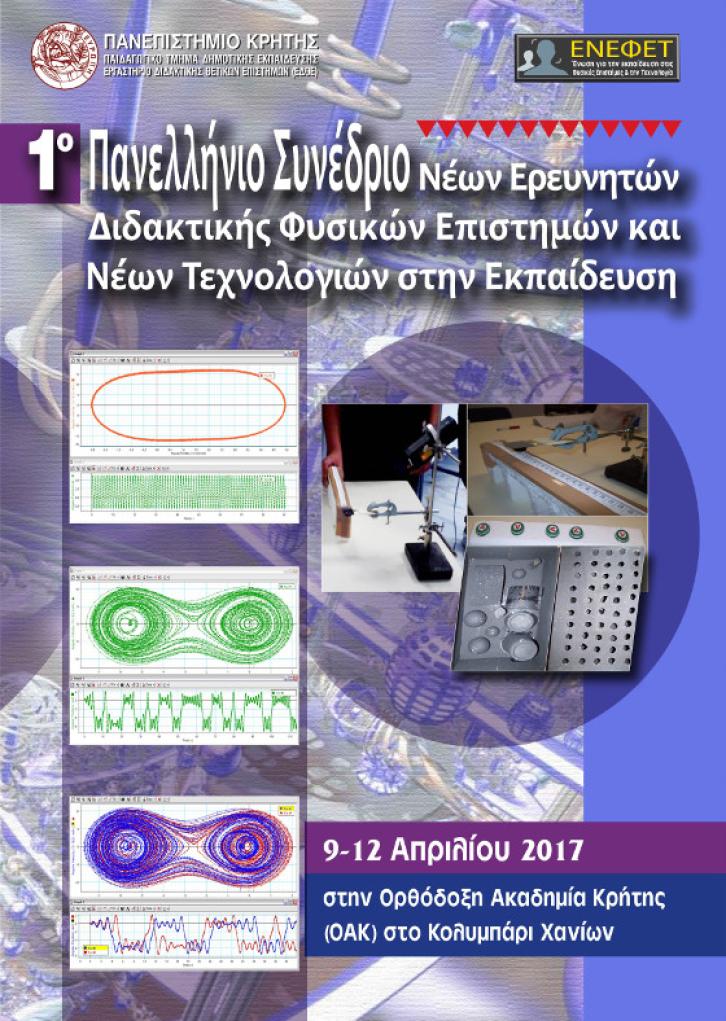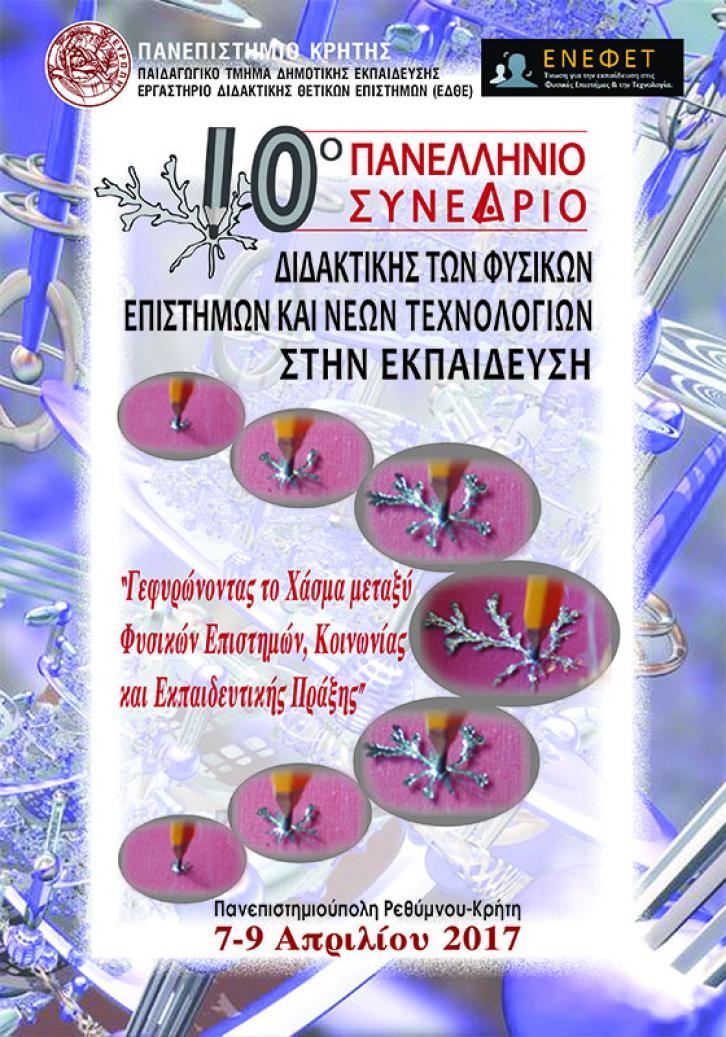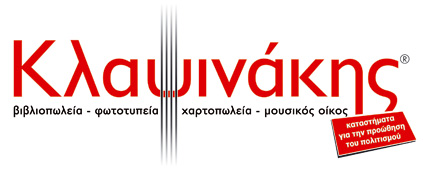- 2831077585
- synedrio2017@enephet.gr
Ron Blonder
Learning science through contemporary research and the integration of Responsible Research and Innovation (RRI) in science education. (Περίληψη - Abstract)

Short CV
Prof. Ron Blonder is an associate Professor in the Department of Science Teaching at the Weizmann Institute of Science in Israel. The goal of Prof. Blonder’s research group is to bring the chemistry of tomorrow into the high school chemistry lessons of today. Her research addresses three issues: nano-scale science and technology education; science teachers’ self-efficacy; and, chemistry teachers’ professional development.
Link to her website: http://www.weizmann.ac.il/st/blonder/
Keynote Speakers - Προσκεκλημένοι Ομιλητές
Learning science through contemporary research and the integration of Responsible Research and Innovation (RRI) in science education
Currently there is a growing body of knowledge examining learning science through contemporary research and cutting-edge development of scientific ideas, e.g., nanoscience and nanotechnology (Jones, Blonder, Gardner, Albe, Falvo, & Chevrier, 2013). According to this approach, students have high interest and motivation to learn modern aspects of science, and they gain high-order skills and conceptual understanding as well. It should be noted that this approach is very challenging for science teachers, who need to continuously participate in professional development programs to update their knowledge. Contemporary research also provides an authentic view into the way scientists conduct their research.
Responsible Research and Innovation (RRI) stands at the centre of several EU projects and represents a contemporary view of the connection between science and society in the EU commission. The goal of RRI is to create a shared understanding of the appropriate behaviors of the European Commission, governments, business and NGOs which are central to building trust and confidence of the public and other stakeholders in safe and effective systems, process and products of innovation (Sutcliffe, 2011).
Von Schomberg (2013) defined RRI as "a transparent, interactive process by which societal actors and innovators become mutually responsive to each other with a view to the (ethical) acceptability, sustainability and societal desirability of the innovation process and its marketable products (in order to allow a proper embedding of scientific and technological advances in our society)." RRI is built of six dimensions (Sutcliffe, 2011): 1. Engagement; 2. Gender Equality ; 3. Science Education; 4. Open Access; 5. Ethics; and 6. Governance. The integration of these dimensions is recommended in order to improve RRI.
In this lecture I will describe the development of our understanding the RRI construct and how to implement RRI in science education when teaching contemporary research in high school level (Blonder et al., 2016). The results that will be presented are based on a three-year EU project, Irresistible. Ten project partners have used this approach for teaching science through contemporary research and the integration of RRI.
References:
- Jones, M. G., Blonder, R., Gardner, G. E., Albe, V., Falvo, M., & Chevrier, J. (2013). Nanotechnology and nanoscale science: Educational challenges. International Journal of Science Education, 35, 1490-1512. doi:10.1080/09500693.2013.771828
- Schomberg, V., & Von Schomberg, R. (2013). A vision of responsible innovation. In R. Owen, M. Heintz, & J. Bessant (Eds.), Responsible Innovation. London: John Wiley, forthcoming.
- Sutcliffe, H. (2011). A report on Responsible Research and Innovation for the European Commission. Retrieved from http://ec.europa.eu/research/science-society/document_library/pdf_06/rri-report-hilary-sutcliffe_en.pdf
- Blonder, R., Zemler, E., & Rosenfeld, S. (2016). The story of lead: A context for learning about responsible research and innovation (RRI) in the chemistry classroom. Chemistry Education Research and Practice, 17, 1145--1155. doi:10.1039/C6RP00177G
Ron Blonder,
Department of Science Teaching, Weizmann Institute of Science, Rehovot, Israel
| Χορηγοί |
|||
|---|---|---|---|
Η ΑΝΕΚ LINES και BLUE STAR FERRIES προσφέρουν 50% έκπτωση για τη μετακίνηση των συνέδρων. Για περισσότερες πληροφορίες επικοινωνήστε στο mail του συνεδρίου: synedrio2017@enephet.gr |
Η MINOAN LINES προσφέρουν 50% έκπτωση για τη μετακίνηση των συνέδρων. Για περισσότερες πληροφορίες επικοινωνήστε στο mail του συνεδρίου: synedrio2017@enephet.gr |
||












